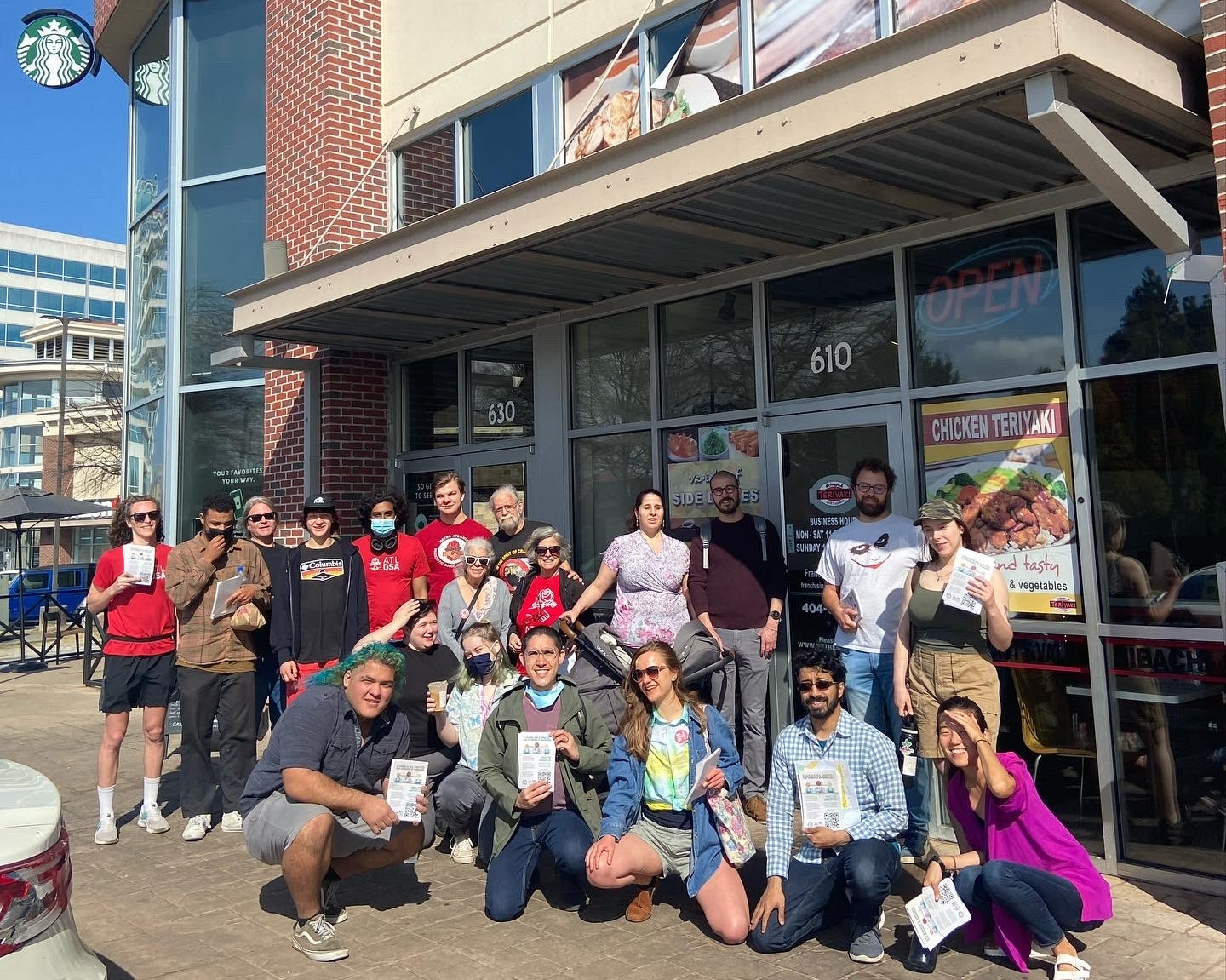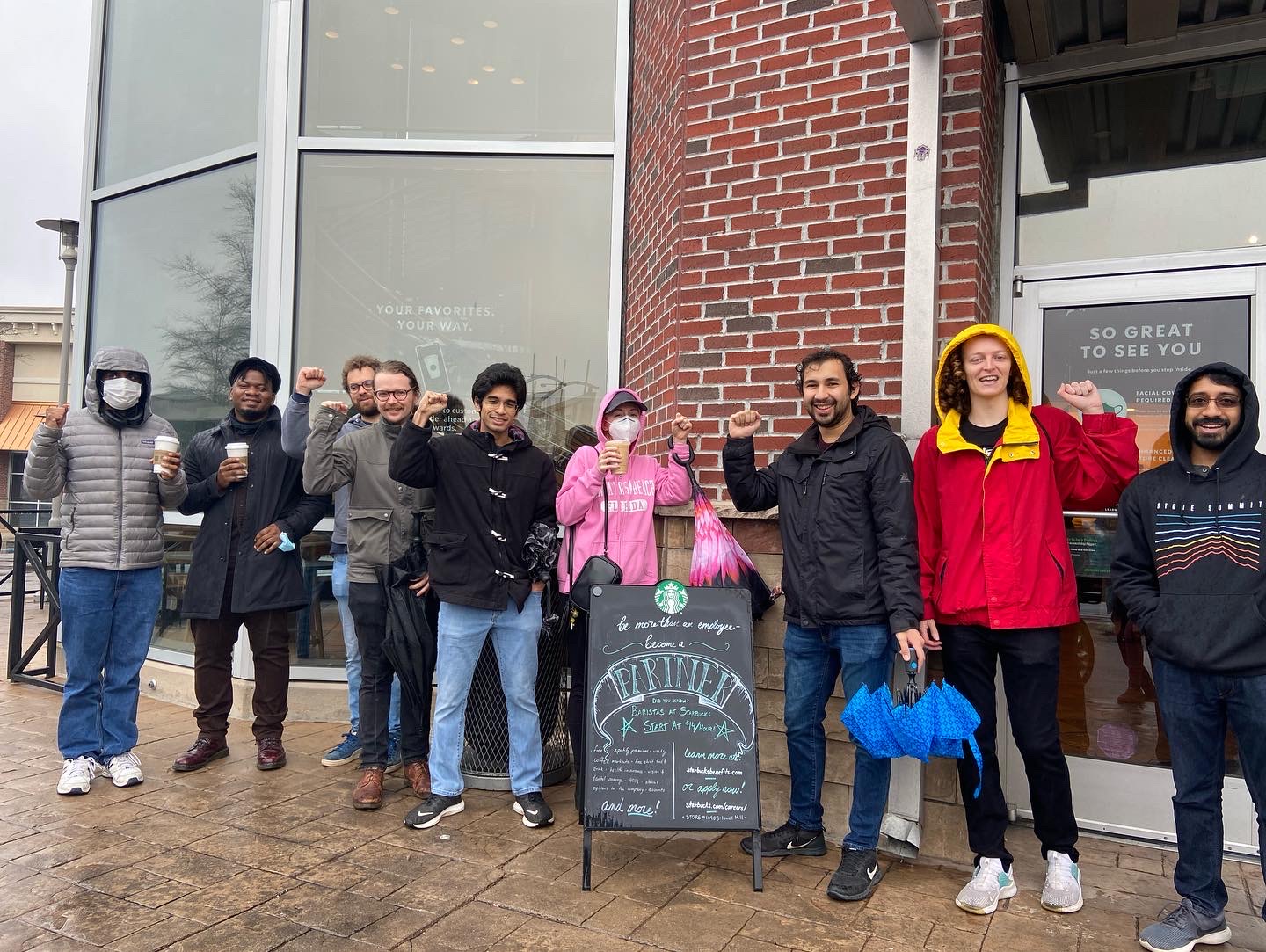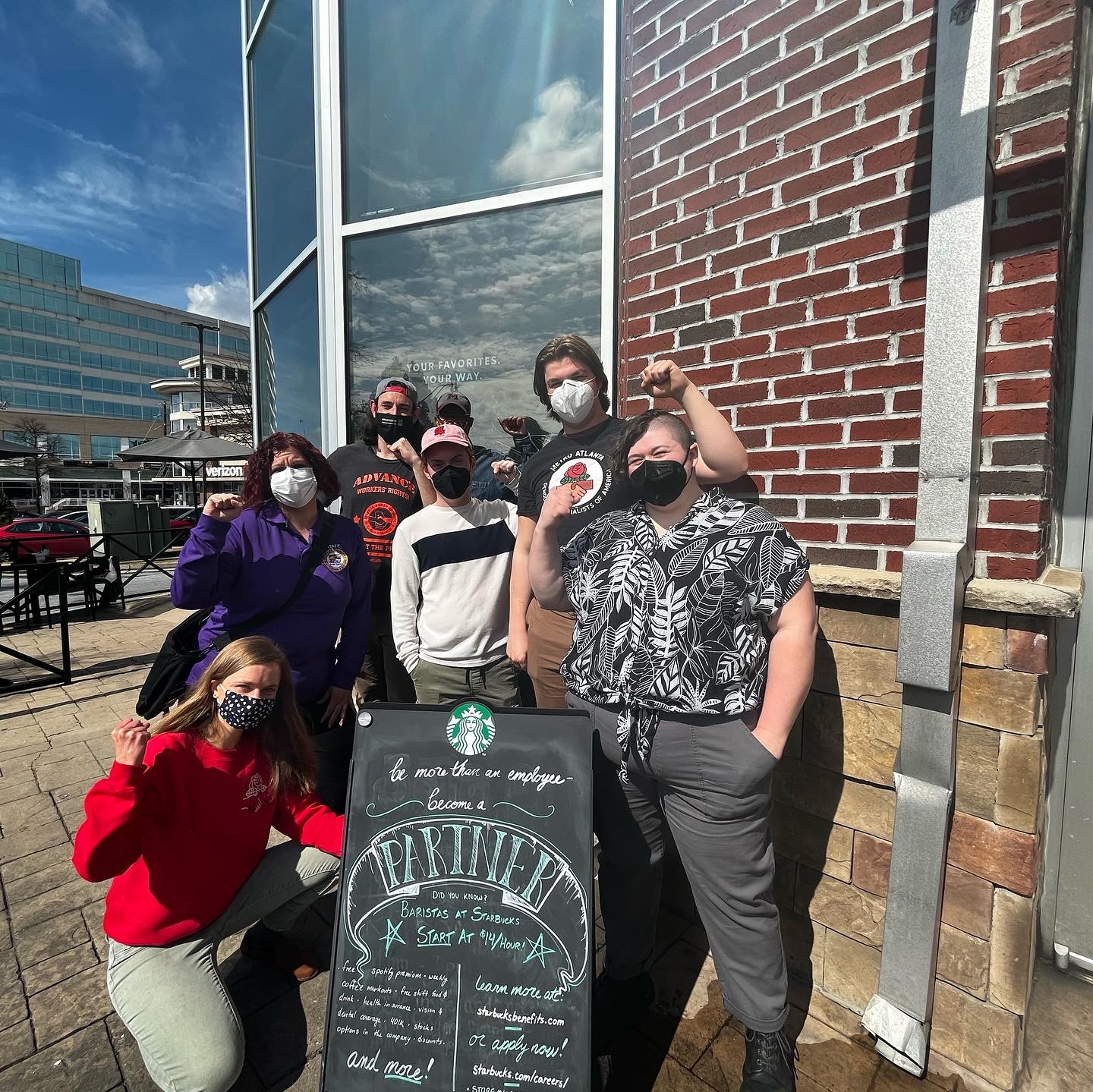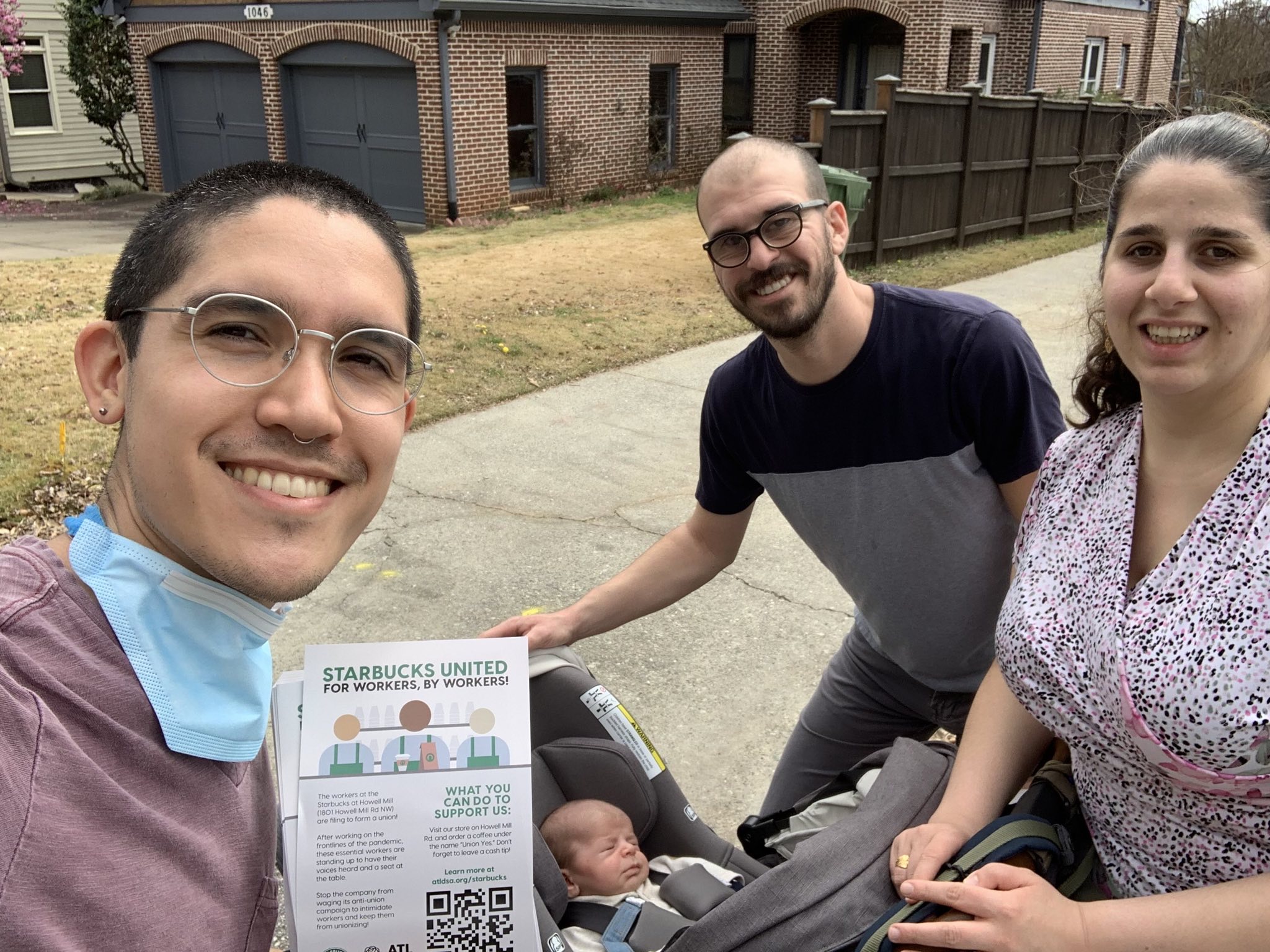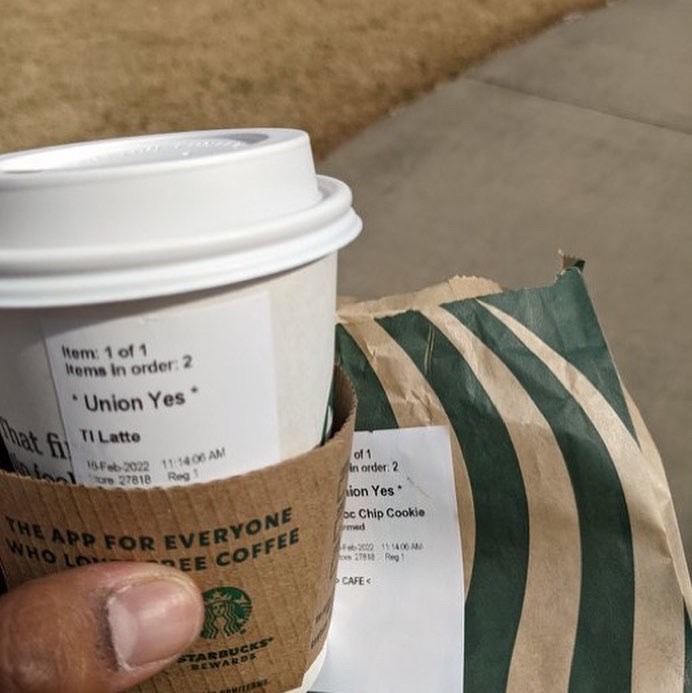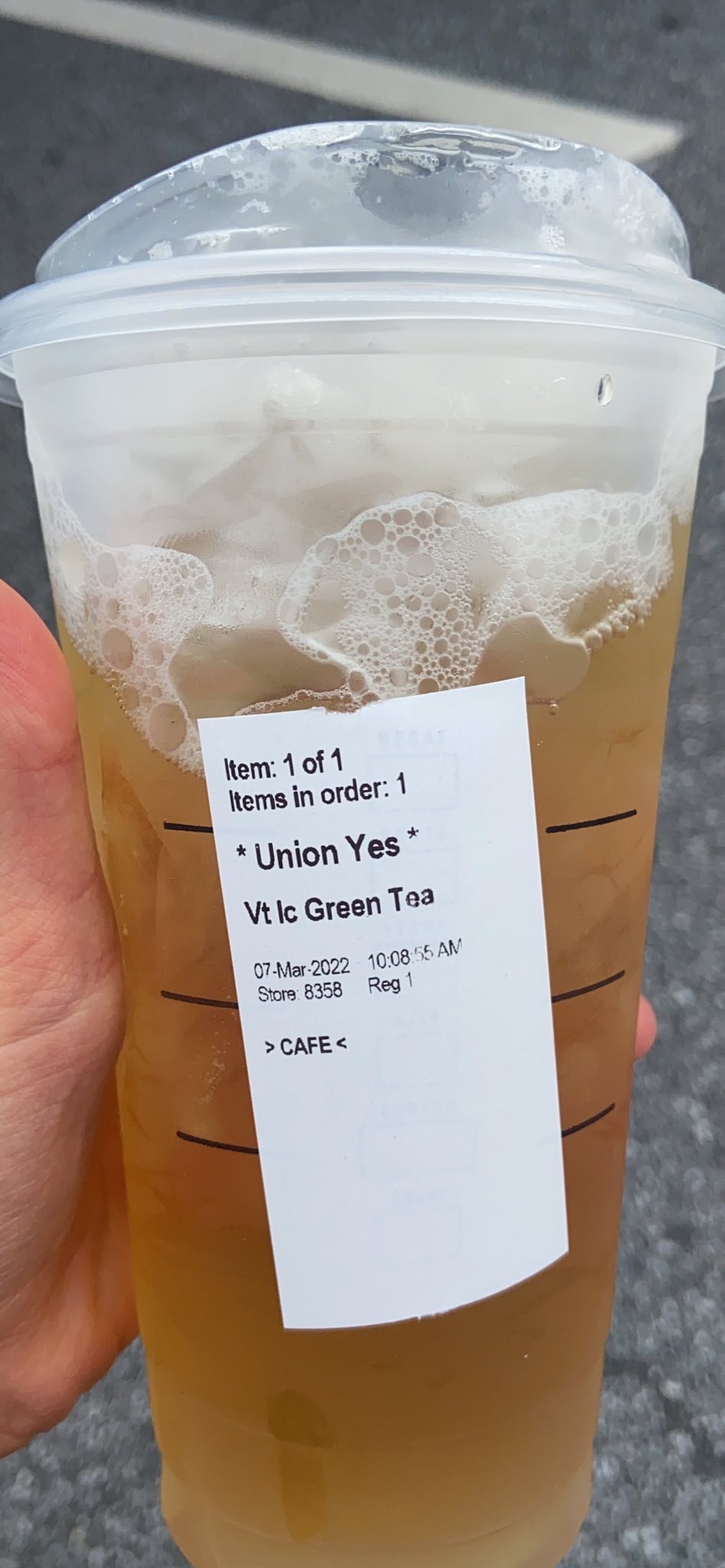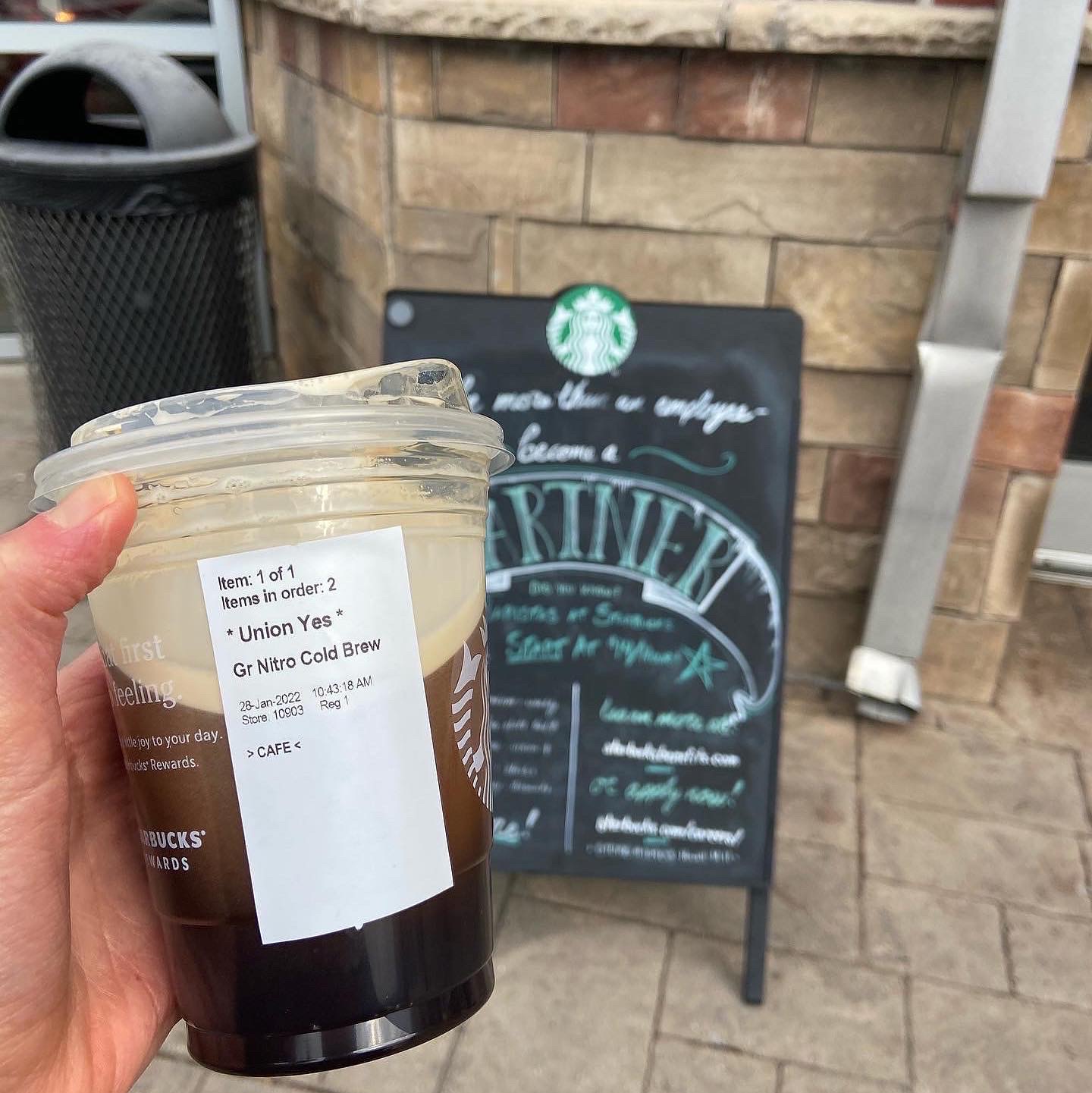On Sunday March 6th, over 20 Atlanta DSA members gathered outside of the Starbucks at Howell Mill in solidarity with workers fighting to unionize their workplace. Together, organizers flyered the neighborhoods and shopping centers surrounding the store to help raise awareness and build community support for the union as workers face increased pressure from Starbucks corporate.
All over the country, Starbucks workers are filing to unionize their stores. Currently, over 150 stores have filed, including two Starbucks locations in the Atlanta area – one at the District at Howell Mill (1801 Howell Mill Rd), and the other at Peachtree Dunwoody and Hammond (6001 Peachtree Dunwoody Rd) – and one location in Augusta, Georgia. Organizing workers have cited low pay, inconsistent hours, and few benefits amongst the grievances they plan to organize around.
As Starbucks locations from Atlanta to Seattle prepare to gather union cards and hold a vote, store managers and Starbucks corporate have engaged in union-busting tactics ranging from cutting worker hours to even illegally firing workers who have spearheaded union efforts. Other tactics include mandatory anti-union meetings and attempts at singling out workers to feed them misinformation on the union process.
Page Smith, a lead organizer in the campaign to organize the Howell Mill Starbucks, cites inconsistent scheduling and too few hours amongst the major grievances at their location. “It’s virtually impossible to know what hours I’ll be working in a given week,” says Smith, who drives Instacart on off-days when Starbucks prohibits them from scheduling hours reliably. “We have rent to pay, we have bills. Starbucks knows this, but they rarely allow us to schedule more than 30 hours per week.” Smith’s coworkers share similar stories about hours being cut to amounts that do not cover the cost of living.
It’s no surprise to see this Starbucks union wave set off in the face of record high inflation, stagnating wages, and unsafe workplace conditions, particularly for those working in food service. The wave follows other workplace organizing efforts launched since the start of the pandemic, including strikes at Nabisco and John Deere, and a union drive at Amazon warehouses in Bessemer, AL. In response, DSA chapters all over the country have mobilized in support of such efforts, picketing alongside striking workers and raising strike funds to cover costs.
Despite the excitement generated by labor solidarity efforts, these recent strike waves and union drives occur amidst a larger downward trend in union membership in the U.S. since the late 1970s, thanks to intense pro-business, anti-labor deregulation efforts. Today, just over 10% of U.S. workers are represented by a union, down from 20% in 1983. The situation is worse in southern states like Georgia, in which right-to-work laws hinder unionization efforts by prohibiting union contracts which require members to pay costs used to sustain the union financially. Less than 5% of Georgia workers were union members in 2021.
Smith has experienced firsthand how workplace organizing conversations with their coworkers differ depending on their home state. Smith, who is from New York (a relatively labor-friendly state), grew up with an ingrained understanding of the role of labor unions, and the benefits of union membership. They note that this experience was not necessarily shared with their coworkers from southern states like Georgia.
“Before I start an organizing conversation, I ask what state they’re from,” says Smith. “The rest of the conversation depends on their answer.” Smith confirms that oftentimes, thanks to the scarcity of unions down south, conversations with coworkers often require added context on the history and benefits of union membership. They note that this could be a lesson to take forward into other industries seeking to organize in the south.
Amongst these benefits, union membership leads to increased wages and job security, plus access to employer-provided health insurance and sick leave. Union-members earn 11% higher on average than non-union workers, and since the onset of the pandemic, union membership helped workers retain jobs more easily during periods of mass layoffs. Unions benefit non-union workers too, since wage increases and other benefits have spillover effects into non-union jobs within an industry.
Despite pressure from management, Smith feels hopeful about the conversations they’ve had with coworkers as they prepare for the upcoming union vote. While it can be a struggle to keep morale high in the face of union-busting, they believe visible community support is key to showing workers they are not alone in their fight. The best way to support workers, Smith says, is to visit the shop on Howell Mill, order a coffee under the name “Union Yes”, and leave a cash tip. They encourage visiting other Starbucks locations as well, in the off-chance that workers who haven’t yet filed need an extra boost.
Community support has arrived in many forms, including gestures from local elected representatives. Last month on Feb. 23, House Rep. Nikema Williams paid a visit to the Howell Mill store to speak with organizers and order a “Union Yes” coffee. Representatives from Atlanta DSA and SEIU Workers United accompanied the visit in solidarity.
Thanks to coordination by Atlanta DSA organizers, on March 21 the Atlanta City Council unanimously passed a resolution, 22-R-3250, expressing support for the union at Howell Mill. Introduced by council-member Bhaktiari, the resolution urged Starbucks to accept the workers’ contract and requested that the Georgia General Assembly enact labor reforms to permit bargaining rights for all Georgia workers. Similar resolutions have passed through City Councils in other cities, including one in Seattle by socialist council-member Kshama Sawant.

While a voting date has yet to be confirmed for Howell Mill, Atlanta DSA plans to continue labor support for all Atlanta Starbucks workers as more filings pop up around the city. “Every time one store has a victory, we see three more file,” says Smith. “We’re hoping this exponential growth continues, because the more of us that are involved, the more power and momentum we have to keep this moving.”
Strong unions are essential to building working-class power, and we must do all we can to support organized labor as the movement grows! To help out with Atlanta DSA’s labor solidarity work, check out the following resources:
- See upcoming labor solidarity events at atldsa.org/15, and sign on to our Fight for $15 pledge!
- Learn more ways to support local Starbucks workers at atldsa.org/starbucks, and national updates at dsausa.us/signup
- Email labor@atldsa.org to get directly involved in our labor solidarity work.
- Organize your own workplace with help from the Emergency Workplace Organizing Committee

